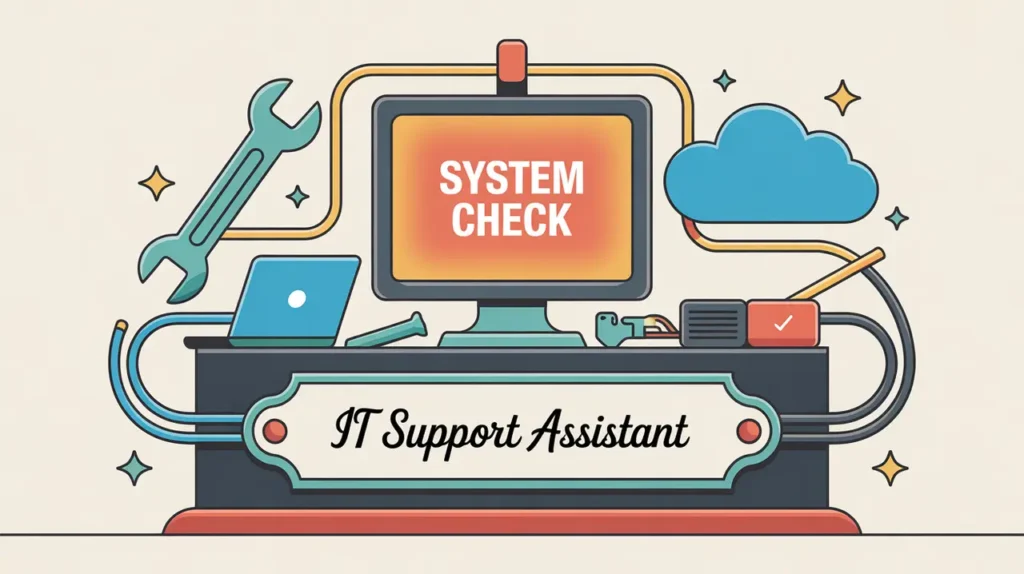What Does the Systems Assistant Role Involve?
A Systems Assistant is responsible for providing administrative and technical support for the maintenance, operation, and improvement of organizational systems. This includes helping to manage data platforms, software tools, digital workflows, and user support tasks. They ensure that systems run smoothly, data is accurately maintained, and users receive timely assistance with routine issues.
In nonprofits and social enterprises, Systems Assistants play a critical role in supporting digital infrastructure, ensuring that teams can rely on well-functioning platforms for program delivery, operations, fundraising, and communications.
At What Level does this Role Operate?
Entry Level: Systems Assistants typically report to a Systems Officer, Systems Manager, IT Lead, or Operations Manager. They work under structured guidance, focusing on clerical, data entry, and basic technical support tasks. This role often serves as an entry point for individuals interested in systems administration, IT, or data management.
Relative Employability: Systems Assistant roles are increasingly common in organizations adopting more sophisticated digital tools and platforms. They offer strong entry pathways for individuals seeking to build careers in technology, data systems, or digital operations within mission-driven organizations.
Relative Pay Scale: Systems Assistants generally occupy the lower pay bands, similar to other assistant and support roles. Compensation reflects their foundational role in supporting systems functions.
What are the Key Responsibilities and Activities?
- Provide administrative support for maintaining organizational systems and platforms
- Enter, clean, and update data in databases, CRMs, or other digital tools
- Monitor system performance and flag issues to relevant technical staff
- Assist with onboarding new users and providing basic training or troubleshooting
- Support documentation of systems processes, data standards, and user guides
- Help manage user access and permissions in accordance with organizational policies
- Coordinate routine system updates, backups, or data quality checks
- Support the preparation of basic reports or data extracts for internal teams
What Core Competencies and Qualifications are Needed?
Required Qualifications and Experience
The following reflect common qualifications and experience expected for this role, while recognizing that pathways may vary by context, organization, and region.
- Relevant academic background or vocational training in IT, information systems, data management, or related fields
- Experience in administrative, data entry, or basic IT support roles is advantageous but not always required
- Familiarity with common business software, databases, or CRM platforms
- Strong organizational skills and attention to detail
- Basic understanding of data management and digital workflows
Key Competencies
- Accuracy and attention to detail in data handling
- Problem-solving and troubleshooting skills for routine issues
- Clear communication skills for supporting non-technical users
- Ability to follow structured procedures and protocols
- Time management and reliability in supporting routine operations
- Willingness to learn and adapt to new tools and systems
How are AI and Automation Shaping this Role?
An AI-native Systems Assistant can use AI to automate data entry, error detection, and reporting tasks. AI tools can help monitor system health, flag anomalies, and provide automated support responses to common user issues. These capabilities allow assistants to focus more on improving data quality, supporting user experience, and learning higher-level systems management skills.
What Career Pathways and Transferable Skills are Associated with this Role?
Systems Assistants can progress to roles such as Systems Officer, Data Analyst, CRM Administrator, or IT Support Specialist. Their foundational skills in data management, platform operations, and user support are transferable to more advanced technical roles. Over time, they may specialize in systems architecture, data governance, or digital transformation, moving into managerial or strategic technology positions.







